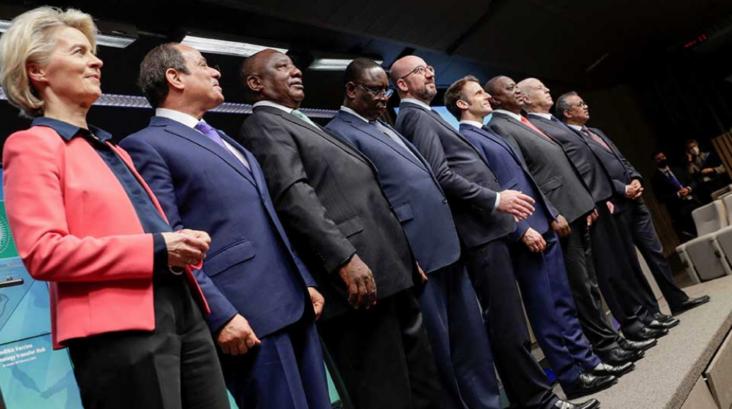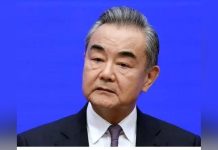Africa-Press – Lesotho. The Ukraine conflict is highlighting the difficulties Europe has in bringing its infrastructure and energy development aid into the 21st century. Earlier this week, we highlighted a tweet from the Africa News journalist Ronald Kato: “Can safely argue at this point that the recent EU-Africa summit was a waste of time.
The Global G[ate]way is dead. ” Eric argues in an upcoming episode the China in Africa Podcast that as the war in Ukraine lurches into sanctions and a refugee crisis, the EU will find it difficult to meet its commitment of countering China’s Belt and Road Initiative in the Global South with a “values-driven” infrastructure rollout of their own.
A key issue here is how these questions are discussed versus how they show up in reality. In the former sense, I also expect Ukraine to be used as a pretext for the redirection of climate change resources to other needs.
But on the ground, there is no disentangling the war from climate issues. Among the world’s producers of natural gas, oil, and coal, Russia ranks number one, two, and three respectively.
This fact has allowed Vladimir Putin to exert far more power than his military prowess justifies. The parameters of the conflict are as much set by Europe’s failure to decarbonize their economies as by Putin’s fantasies about Ukrainian statehood.
It would be quite ironic if the EU now uses Ukraine-linked geopolitical pressures as a way out of the Global Gateway, considering how much the Global Gateway itself framed green energy as a geopolitical issue.
Alfonso Medinilla is the co-author (with Katja Sergejeff and Ennatu Domingo) of a fascinating article looking at Africa’s green transition in a geopolitical context.
It points out that the Global Gateway has consistently been described as a way to counter Chinese infrastructure provision, rather than as a way of feeding into integrated African development plans where China already plays a role.
In EU Commission President Ursula von der Leyen’s words: “It does not make sense for Europe to build a perfect road between a Chinese-owned copper mine and a Chinese-owned harbor.
” Leave aside that it probably makes perfect sense to the African country hoping to boost development through copper exports.
The report argues that while this framing has come to define the Global Gateway, in reality, Chinese and European green energy providers in Africa are working on parallel tracks. They’re not in direct conflict, nor can their projects or capacity be substituted on a one-to-one basis.
More importantly, the African demand for sustainable energy is so vast that both Chinese and European energy providers can profit from it for years to come without crowding each other out. But this is still a fantasy.
Ukraine reveals the reality: all of us, even the rich countries who love to think of themselves as messengers from a better, more rational future, are stuck in the sooty swamp of the twentieth century.
More than the tanks in Kyiv, our fatal stuckness is revealed by the spiking oil and gas prices around the world suddenly driving inflation all the way back to 1974.
165205
If Ukraine reveals anything, it’s a massive collective failure of imagination – a joint refusal to imagine the 21st century, because our brains can’t seem to bear leaving the dusty confines of the past.
Each trader betting on liquid natural gas futures, each discussion of how China will sway between Russia and Saudi Arabia, each comedian’s joke about high gas prices, just shows how stuck we are.
It would be a real tragedy if Ukraine is used as a way to cancel the Global Gateway because nothing shows how much we need the GG (and the BRI and the B3W) than Ukraine.
In other words, green energy is the future and Africa is the future. They’re our only way out of the swamp. Published in partnership with The China Africa Project.
For More News And Analysis About Lesotho Follow Africa-Press






